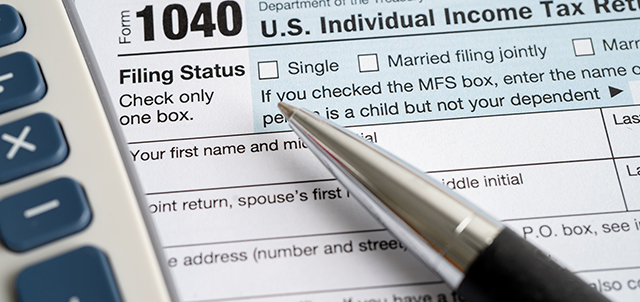What Does It Mean to Be Pre-Tax or Tax-Advantaged?

As you look over an employer’s benefits selections or research retirement accounts, you may see phrases like “pre-tax” and “tax-advantaged.” But what do these terms really mean, and why is it important for you to know the difference? Though they all imply a tax benefit, these statuses carry distinct implications for your wallet.
The first step is to understand the terms you might come across:
- Pre-tax refers to a benefit, such as a health spending account (HSA), that’s deducted from your paycheck before taxes are calculated.
- Tax-deferred refers to earnings, such as those in a traditional retirement account, that accumulate tax-free until you withdraw funds from the account.
- Tax-exempt refers to earnings, such as those in a Roth retirement account, that generally aren’t subject to taxes at withdrawal.
- Tax-advantaged is often used interchangeably with these terms to refer to any plan, account or asset that provides you with a tax benefit.
Utilizing any or all of these benefits could mean more money in your pocket at the end of the year. Let's take a look at them each in turn.
Pre-Tax Benefits
As noted above, these are employer-provided fringe benefits for which the cost is subtracted from your paycheck before your taxes are calculated.
Common tax-free benefits include:
- Health care premiums
- Contributions to an HSA or flexible spending account (FSA)
- Long-term care insurance
- Term-life insurance
- Disability insurance
- Educational assistance
- Dependent care assistance
- Commuter benefits
Every dollar paid toward a pre-tax benefit reduces your current taxable income by an equal amount, which means you’ll owe less in income taxes for the year.
To understand how this works, consider the following example: Say you earn $50,000 but contribute $1,600 to your FSA to put toward qualified health care expenses. If you look at just that one pre-tax expense, you'll find that you now only owe taxes on $48,400 rather than $50,000.
Taking advantage of multiple pre-tax benefits could add up. To see how pre-tax deductions would affect your tax bill, try using the IRS tax estimator tool.
It’s worth noting, however, that your ability to contribute to these pre-tax benefit accounts will vary by employer. There are also federal limits on how much you can contribute to different accounts in a tax year. Learn more from the IRS or consider consulting a tax professional.
Tax-Advantaged Retirement Contributions
Another area where you’ll often see the phrases "pre-tax" or "tax-advantaged" is when it comes to retirement savings.
Many employer-sponsored retirement savings accounts—including traditional 401(k), 403(b) and 457(b) plans—allow you to save for retirement on a tax-deferred basis. Your contributions to these accounts are made on a pre-tax basis, and you won't pay taxes on that money or on its earnings (including interest, dividends and capital gains) until you withdraw from your account, usually after you retire.
Traditional IRAs might also provide tax deferral benefits, depending on your income and your other retirement investments.
The tax you eventually pay depends on your income tax rate at the time of the withdrawal. Most people have less income in retirement than they did when they were working and thus can expect to pay these deferred taxes at a lower rate—assuming, of course, that tax rates remain the same.
To continue with the previous example, if you earn $50,000 but contribute $1,600 to your FSA and an additional $6,000 to your traditional 401(k), you’ll find that you now owe taxes on only $42,400 at the end of the year.
Other Tax-Advantaged Investments
Your contributions to a Roth 401(k), 403(b) or 457(b) plan or Roth IRA are made with your post-tax dollars, but these contributions are still tax-advantaged. The advantage in the case of a Roth account is that withdrawals are completely tax-free, provided that the account is open at least five years and you’re at least 59½ at the time of withdrawal.
Other common tax-advantaged investments include 529 college savings plans, which provide tax-exempt withdrawals for qualified education expenses, and municipal bonds, which generally provide tax-free interest payments.
A tax professional can help you understand the implications for your personal situation.
Also, while all of these investments have tax benefits, they also have risks. Talk to your financial adviser about the benefits and risks of these investments and whether they’re a good fit for you.
Updated: 04/25/2024



